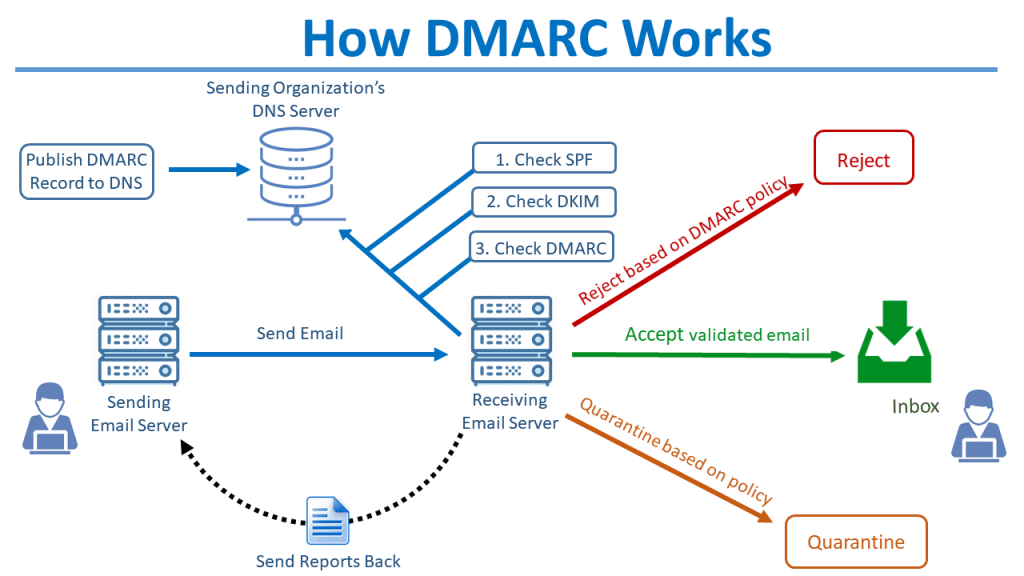Hotel email deliverability depends heavily on proper DNS setup and authentication to ensure messages reach the inbox. In today’s digital age, email marketing has proven to be one of the most effective ways to reach and engage with clients and prospective customers. For luxury hotels and resorts, where personalized service and connection with guests is paramount, email marketing is a vital tool for maintaining brand loyalty, promoting offers, and driving bookings. However, even the most well-crafted email campaigns can fail if they don’t make it to the recipient’s inbox. One of the critical aspects of ensuring successful email delivery lies in the proper setup of DNS (Domain Name System) records for email marketing.
What is DNS and Why Does it Matter for Email Marketing?
The Domain Name System (DNS) is essentially the internet’s phonebook, translating human-friendly domain names like “americasgreatresorts.net” into the numerical IP addresses used by computers. DNS is crucial for routing internet traffic properly. In the context of email marketing, DNS plays a critical role in ensuring that the emails you send from your domain are authenticated, trusted by email service providers (ESPs), and delivered to the recipient’s inbox instead of their spam folder.

Why DNS Setup is Critical for Email Deliverability
Incorrect or incomplete DNS configuration can severely impact your ability to reach your clients through email. Here are some reasons why setting up DNS records correctly is essential for email marketing:
1. Authentication & Trust with ISPs
Internet Service Providers (ISPs) and email platforms like Gmail, Yahoo, and Outlook evaluate the legitimacy of incoming emails to protect their users from spam and phishing attacks. One of the first things these systems check is whether the sender’s domain has properly configured DNS records, including SPF, DKIM, and DMARC. These DNS records act as authentication mechanisms, verifying that the email comes from an authorized sender.
- SPF (Sender Policy Framework): SPF allows the domain owner to specify which mail servers are authorized to send emails on their behalf. A correct SPF record reduces the likelihood of email spoofing and ensures ISPs know which emails are genuinely from you.
- DKIM (DomainKeys Identified Mail): DKIM provides a way for email receivers to verify that the message was not altered in transit. It does so by digitally signing the email, proving that it was sent by the owner of the domain.
- DMARC (Domain-based Message Authentication, Reporting & Conformance): DMARC builds on SPF and DKIM by specifying how email receivers should handle unauthenticated emails. A DMARC policy helps prevent fraudulent emails from being delivered and improves your email reputation.
By properly configuring these DNS records, your emails are more likely to be trusted by ISPs, ensuring that they land in the inbox rather than the spam folder.
2. Improves Email Deliverability Rates
A correctly set up DNS boosts your sender reputation and, by extension, your email deliverability rates. Sender reputation is akin to a credit score in the email marketing world—if ISPs trust you, your emails are more likely to reach the intended inbox. Without proper DNS records, your emails can be flagged as suspicious or fraudulent, even if they contain legitimate content. This not only impacts individual campaigns but can also hurt your brand’s overall reputation with ISPs.
For luxury hotels, maintaining strong deliverability is key to ensuring that special offers, booking confirmations, and personalized messages reach customers in a timely manner. A drop in email deliverability can result in missed business opportunities and weakened customer relationships.
3. Avoid Being Marked as Spam or Blacklisted
A failure to authenticate emails through DNS increases the chances of your domain being marked as a source of spam. Emails that fail authentication checks are often automatically sent to spam folders, or worse, your domain could be blacklisted by major email platforms.
If your domain gets blacklisted, future email campaigns will struggle to reach your recipients, regardless of content quality. Correct DNS setup is a proactive way to avoid this scenario, ensuring that your email campaigns continue to deliver strong results without the risk of being associated with spammers.
4. Boosts Open Rates and Engagement
When your emails reliably land in the inbox, your open rates and engagement metrics will naturally improve. Clients and prospective guests are more likely to open and engage with your emails if they consistently receive them in their inbox. With correct DNS settings in place, you can trust that your messages are reaching the right people, at the right time.
Luxury hotels and resorts rely heavily on customer engagement to drive bookings and keep their guests informed about upcoming offers or events. Every time an email lands in spam, that’s a potential lost opportunity to connect with a valuable client.
How to Properly Set Up DNS for Email Marketing
Setting up DNS for email marketing involves configuring several key records:
- SPF Record: Ensure that your domain’s DNS includes an SPF record listing all authorized sending servers. This record should be updated if you add new marketing tools or email service providers.
- DKIM Record: Generate a DKIM key through your email service provider or domain registrar, and add this key as a TXT record to your DNS settings.
- DMARC Record: Implement a DMARC policy to specify how ISPs should handle messages that fail SPF or DKIM authentication. A DMARC record provides an extra layer of protection and allows you to receive reports on the success or failure of your email authentication.
Monitoring and Maintenance
Even with proper setup, it’s essential to monitor and maintain your DNS records. Email marketing systems change over time, and adding new marketing tools or services might require updates to your DNS settings. Regularly check your SPF, DKIM, and DMARC configurations to ensure they are working as intended.
How DNS Configuration Affects Hotel Email Deliverability
Improving hotel email deliverability starts with aligning DNS records, authentication, and sending practices.
Final Thought
For luxury hotels and resorts aiming to stay connected with their guests and prospective clients through email, the correct setup of DNS is not just a technical detail—it’s a critical component of successful email marketing. By ensuring proper DNS configuration, you increase the likelihood that your messages will land in inboxes, build trust with ISPs, and protect your brand from being associated with spam. In a competitive hospitality industry, reliable email communication can make all the difference in driving bookings, building customer loyalty, and maintaining strong relationships with your audience.
If you’re unsure about the current state of your DNS setup or want to ensure maximum email deliverability, it’s worth consulting with an expert or your email marketing provider to audit your settings.

